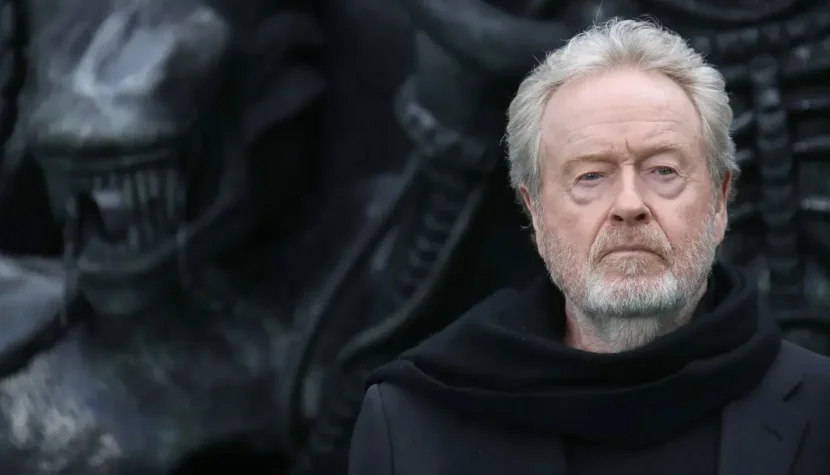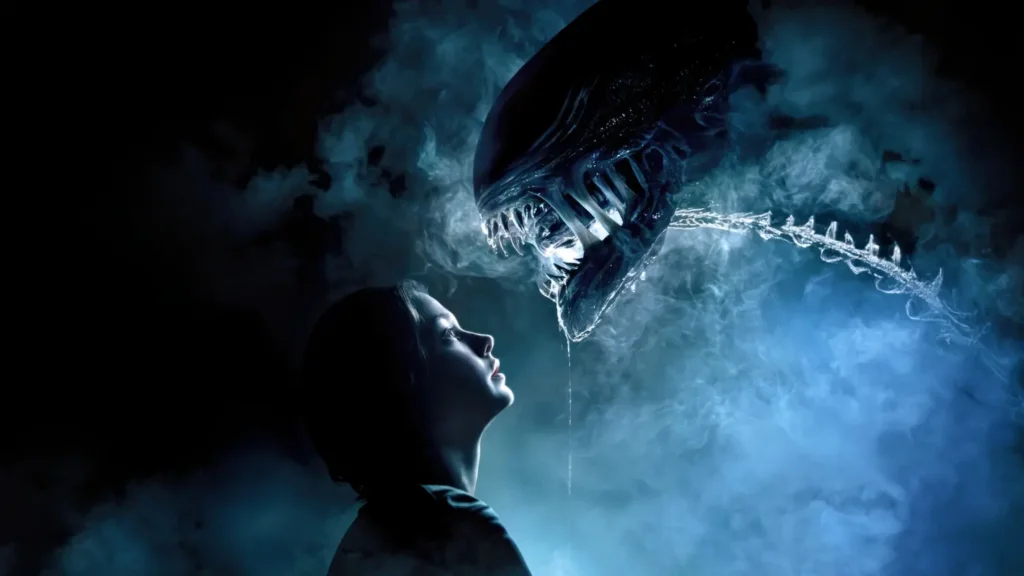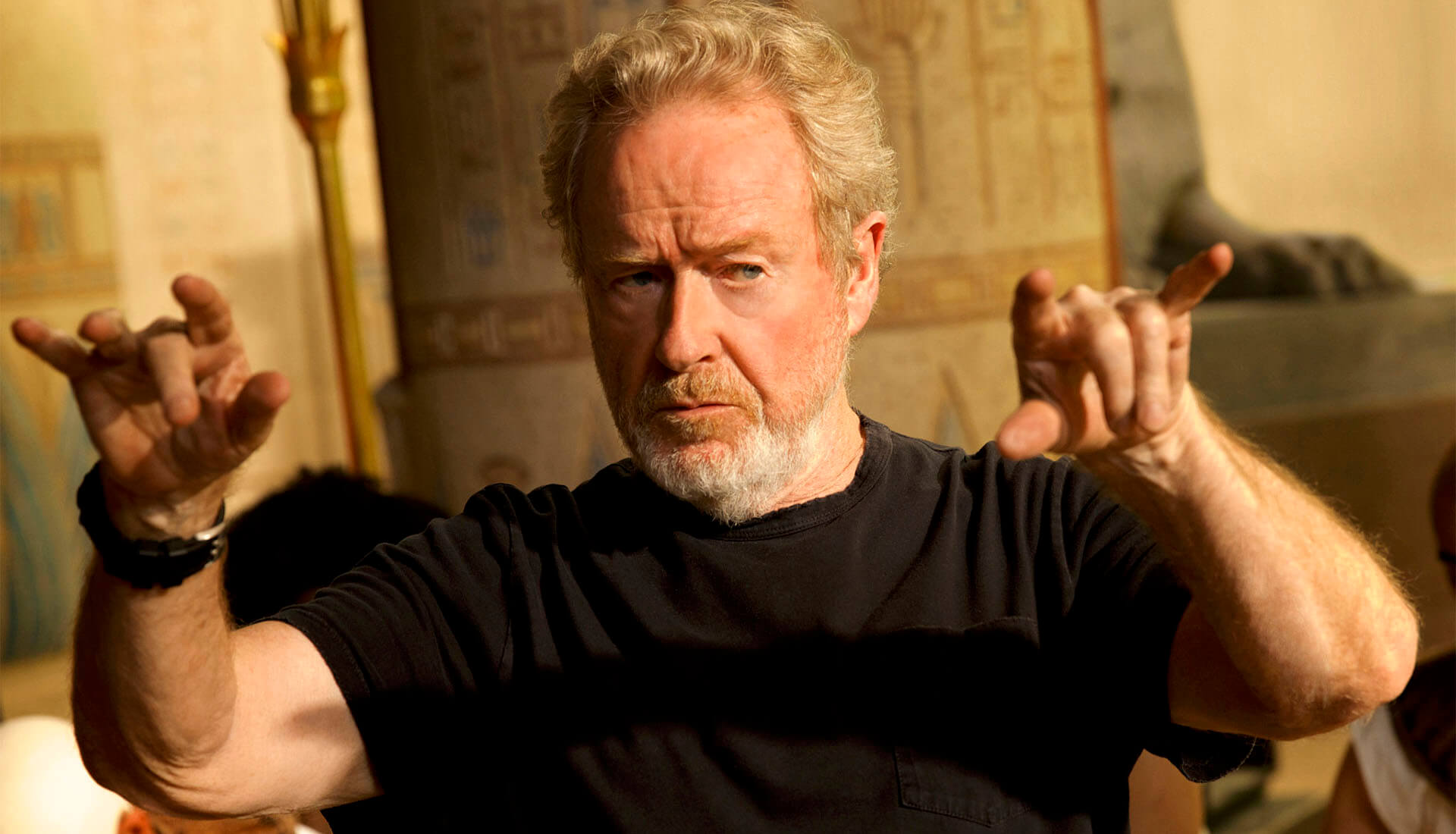There is no better Xenomorph than Ridley Scott’s, and the rest are just footnotes to it

Overall, I’m glad that “Alien: Romulus” turned out like a reheated meal for the tenth time, something a stingy owner of a low-end bar tries to sell to a starving student. It proves two important points. First, the concept of “Alien”, created by Scott, O’Bannon, and Giger, is complete, and no matter how much time passes or technology advances, it can only be repeated in future productions to cash in on its success. Second, there’s no real point in expanding the story of humanity’s fight with Xenomorphs in the timeline between already published films, except for what happens after “Alien: Covenant”, because that’s the most factually interesting part. The rest would just be repetitions, footnotes that add nothing to the universe but may encourage new generations to explore the older films. So, nothing is lost.
This is evident in “Alien: Romulus”, which feels like a diluted version of “Alien” (the first film), where someone tried to fuse it with “Aliens” by James Cameron to spice things up and make more money. Still, it’s not necessarily a bad thing that “Romulus” got made. I hope it encourages younger audiences to check out the older productions, which only their parents remember, endlessly reminiscing about some atmospheric sci-fi, which is being destroyed by today’s Marvel schlock.

Though some may think I’m already a grumpy old man, I don’t think that way about Marvel, especially not that its fans have lower intellectual abilities, which is unfortunately something I’ve heard from some older folks who are generally terrified of CGI. Sometimes, however, those older people are right to reminisce, because “Alien: Romulus” didn’t offer anything new stylistically. It couldn’t. In fact, it somewhat ruined the classic motifs proposed by Scott by introducing a mentally weak protagonist, Rain (played by Cailee Spaeny), who doesn’t even physically match the strength of Ellen Ripley (Sigourney Weaver), the real heroine before whom the Xenomorph at least hesitated. And then there’s the whiny, always torn android, Andy (David Jonsson), caught between his duty to Weyland–Yutani and his “humanity.” The crew of outcasts, longing for a wealthy life outside the mining colony, don’t show much intelligence either. When they enter the abandoned Romulus Remus station, they immediately turn on the power and life support systems and then take off their masks, ignoring any potential microorganisms or viruses. I won’t even mention the idiocy of stealing coolant without checking what it cools or if it’s dangerous. I’m waiting for the rightful criticism of their behavior, as nitpicky and relentless as it was for “Prometheus”. So far, I haven’t seen it. Selective criticism, perhaps?
The expansion of the universe in “Romulus” was also only moderately successful. From previous films, viewers should have already figured out that Weyland-Yutani is an exploitative company more interested in military advancements than peaceful ones. Showing this again infantilizes the universe, which has always had a certain closed-off nature, even in “Prometheus” and “Covenant”, to which “Romulus” strongly refers. The sentimentality of the pregnant character, Kay, is somewhat compensated by what emerges from her bloody birth canal — a mutation of human DNA and microorganisms that the Engineers once cleverly used to create life on Earth, and later David used to construct… Exactly. This mutation again refers to “Prometheus” and also mythology. It has the face of an Engineer, though one fighting for survival in a brutal way, even at the expense of its mother. Nothing new there. Even cellar spiders devour their mother to survive the dangerous early stage of life. The problem is, we already know all these motifs, including the sounds of the computer booting up at the beginning of “Romulus”.

Fede Álvarez and Rodo Sayagues didn’t offer anything new to the audience, while Ridley Scott returned to the Xenomorph story in a revolutionary way in “Prometheus” and “Covenant”, after Jean-Pierre Jeunet’s somewhat misguided take. There’s no “Alien” richer in content than the one Scott shaped back in the ’70s. Even Fincher’s version still features the same monster, functioning in a similarly closed-off world, with Ellen Ripley as the heroine — whose moral allegory may be broader, and whose fate is more tragic — but that’s all. So, is there anything else that could surprise the audience as Scott did when he returned to the series in 2012? Since we’ve already established that “Romulus” is merely a footnote to “Alien” and adds little to the series aside from clarifying some points about Weyland-Yutani, it’s worth considering which direction the series should take next. It’s certainly not copying the slasher, claustrophobic sci-fi horror path. That was laid out and concluded in “Alien”, and it’s clear that attempts to remake it, as seen with “Romulus”, are ambivalent, as if the creators feared being decisive, feared emotional distance in the characters, and felt the need to put unnecessary, lofty humanist dialogues in their mouths. Even the rational half-android Ash didn’t help, though he was a bright spot in this remake map, where even the music was a rearranged copy of Jerry Goldsmith’s themes. The truth is, when you have such a historical blueprint, producing more films in the “Alien” universe in the style of “Romulus” is a poor challenge. A far more promising and difficult path would be to continue developing the story of David after “Covenant”. The stylistics of “Covenant” and “Prometheus” is also a good starting point to push the universe forward. Due to its lack of originality, “Romulus” won’t survive — it’s a mere imitation, too simple in its metaphor, even romanticizing the Xenomorph (with the scene of saving Rain in the elevator shaft), anthropomorphizing it, and even invoking the socialist idea of freedom, which the workers oppressed by the Weyland-Yutani corporation are fighting for.
Each of the previous films had its own distinct character. “Alien” was the first, presenting the Xenomorph as a perfect, innovative organism and the protagonist of a cosmic horror film, setting the path for the genre. “Aliens” thrilled viewers with action while respecting the original, for which James Cameron deserves recognition. “Alien 3” returned to the roots but with a much broader philosophical foundation, completing and ending the story of Ellen Ripley, a female protagonist who challenged gender norms. Then there was “Alien: Resurrection”, an experiment that introduced surrealism to the universe, poorly received but still financially successful for Jeunet and very distinctive. The series concluded with “Prometheus” and “Covenant”, new, revolutionary entries that opened the Xenomorph’s history, debunking the mystery of the perfect organism, demythologizing its origins — just as the Xenomorph exposed our sexual fears back in 1979. So, what can be said about “Romulus” in the context of all these films? I honestly don’t know. I can’t see how it stands out, what makes it unique or one of a kind. If it was meant to be fan service, then it succeeded, but beyond that, it’s empty, whereas every previous “Alien” film had depth, even if some thought the intimate chase for an unknown organism with a flamethrower in hand aboard the dark Nostromo was nothing but a simple exploitation of jump-scare-loving viewers. Perhaps the creators of “Romulus” were envious of Michael Fassbender’s brilliant portrayal of David and wanted to introduce their own android with similar mental dilemmas. The result, however, feels like a herring pretending to be a goldfish.

At least the Xenomorph blood in “Romulus” really burns through everything, unlike in previous films where, depending on the scene, it either nearly pierced the ship’s hull or was as harmless as juice. So, here’s hoping that Ridley Scott or Denis Villeneuve will one day tell me the full story of David.

